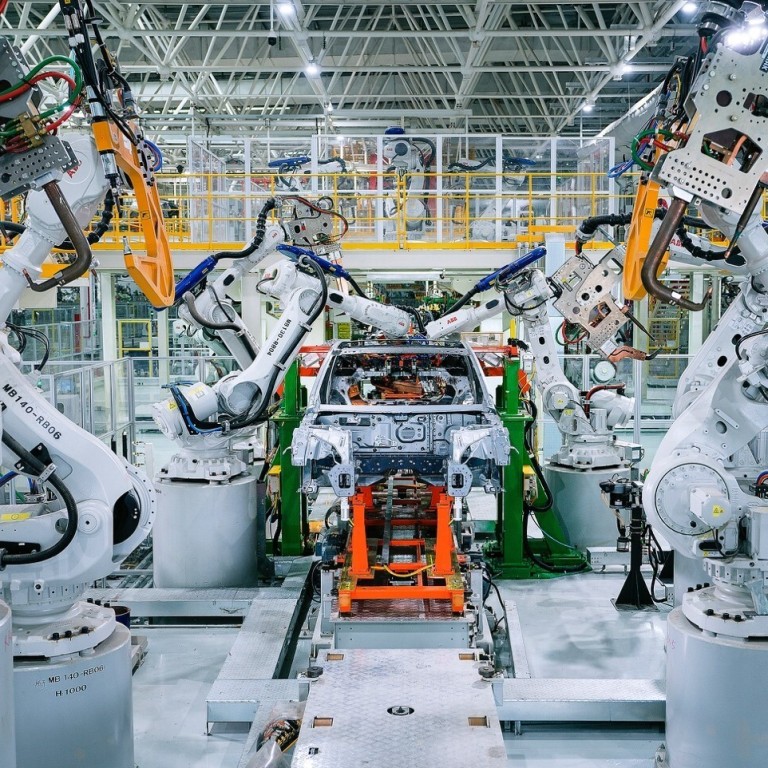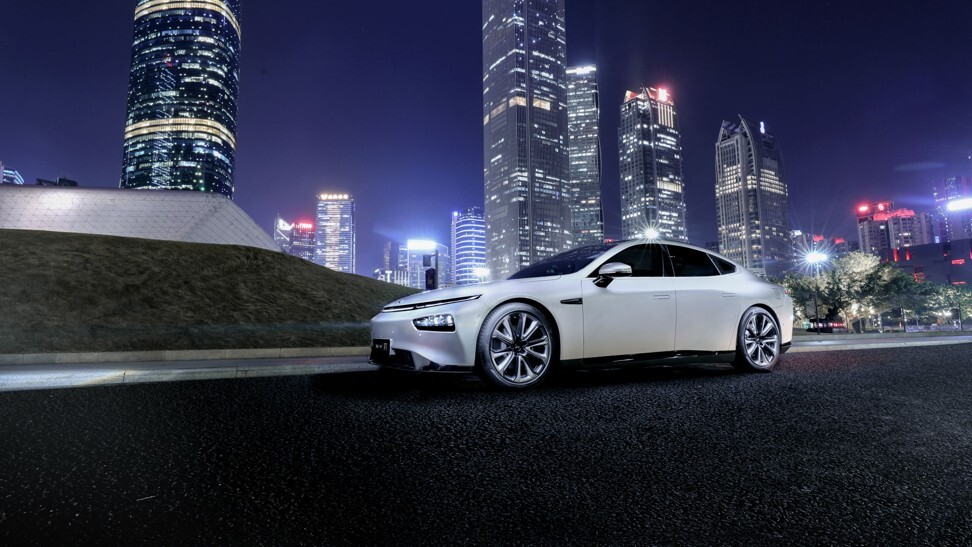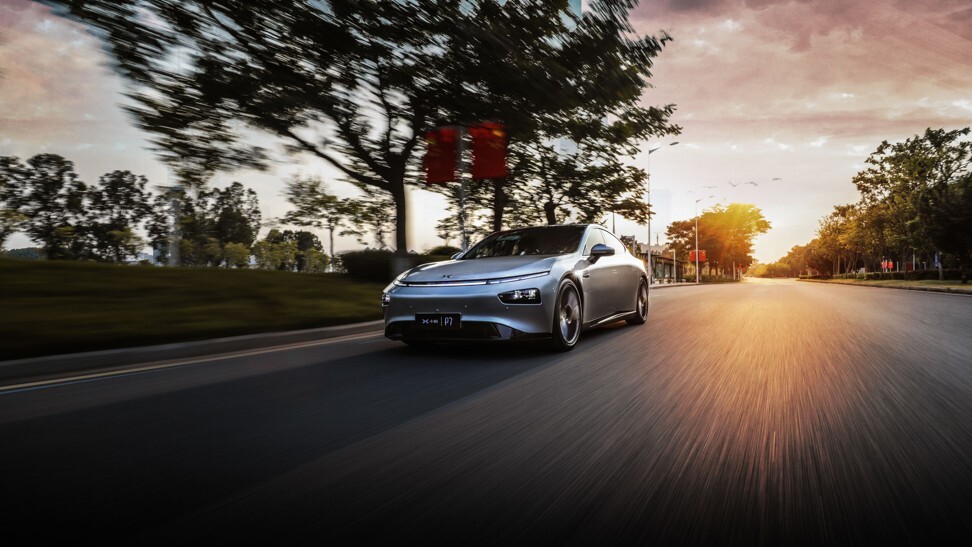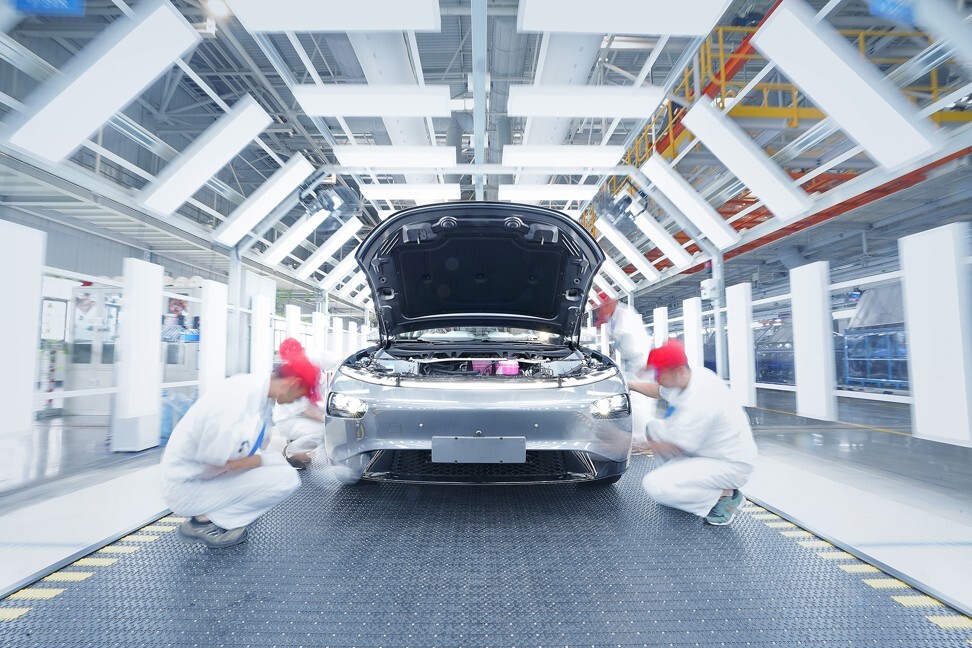
Xpeng jump starts New York IPO, raising capital to expand in China and challenge Tesla in world’s largest electric vehicle market
- Xpeng makes US IPO filing public as it seeks to capitalise on rally in shares of electric carmakers
- Xpeng’s share sale follows in tracks of Chinese peer Li Auto’s debut on Nasdaq
XPeng Inc applied to list its shares on the New York Stock Exchange, as it seeks capital to challenge Palo Alto-headquartered Tesla in China, the world’s largest market for electric vehicles.
“If any such deliberations were to materialize, the resulting legislation may have a material and adverse impact on the stock performance of China-based issuers listed in the United States. It is unclear if this proposed legislation would be enacted,” said Xpeng in its filing lodged with the US Securities and Exchange Commission on Saturday Hong Kong time.

China’s electric car start-ups are tanking up on capital to fuel their fight for market share in the world’s largest car market.
“The recent rally in Tesla’s stock price has encouraged investors in China to continue to put money into this space,” said Mingchen Xia, co-head of Hamilton Lane’s Asian investments fund investment team.
Shares in New York-traded Nio, a Chinese vehicle maker that only produces electric cars, have more than doubled so far this year.
Xpeng’s fundraising comes after China’s passenger car sales rebounded recently from a sharp fall in the first quarter because of the coronavirus pandemic.

Guangzhou-headquartered Xpeng is selling an unspecified number of Class A ordinary shares and 429,846,136 Class B ordinary shares. Each Class A ordinary share will be entitled to one vote, and each Class B ordinary share will be entitled to 10 votes, according to the filing.
Investment bankers at Credit Suisse, J.P. Morgan and BofA Securities are handling the share offering.
Xpeng generated sales of 1 billion yuan (US$141.9 million) in the six months ended June 30, down from 1.2 billion yuan in the same period a year earlier, the filing showed. Some of its offices and stores, as well as manufacturing facilities, were closed for periods in February and March due to the coronavirus pandemic. Its losses shrank over the same time frame to 1.4 billion yuan.
“The development of this industry is still in its early stage, so a lot of government subsidies are needed, but once the market gains critical mass the cost of production will fall, and EV start-ups will make profits. Investors still believe in this, and that’s why the sector continues to win capital,” said Hamilton Lane’s Xia.
“It is an exciting space and highly competitive – some companies will be successful, but not everyone,” said Hamilton Lane’s Xia.
Xpeng has raced past several milestones this year, including launching its second EV model, the P7 sports sedan in April. The P7 sports sedan is Xpeng’s second production model and has a driving range of about 706 kilometres (439 miles) on a single charge, the longest among electric vehicles sold in China. Xpeng started deliveries of the P7 last month.
The P7, premiered at the Shanghai Auto Show last April, retails at between 230,000 yuan (US$34,240) and about 300,000 yuan, nearly a third of the price of a Tesla Model S in China.
Xpeng’s first production model, the G3 electric sport utility vehicle released in 2018, is assembled in the Henan provincial capital of Zhengzhou by contract manufacturer Haima Automobile, a subsidiary of state-owned carmaker FAW Group.
“Execution an d implementation are key. Entrepreneurs can’t just sell a dream to investors; they have to show they can build a factory, a supply chain and clear safety tests. That all requires a lot of capital and resources,” said Hamilton Lane’s Xia.
Xpeng delivered 2,451 smart EVs, including 1,641 units of the P7 and 810 units of the G3, to customers in July 2020. It plans to launch its third smart EV, a sedan, next year.

Founded in 2015 by entrepreneur and former Alibaba executive He Xiaopeng, the eponymous firm sells to the middle and high-end of the smart electric vehicle market in China and prides itself on building its software in-house, end-to-end. It uses the Nvidia high-performance chip Xavier and its P7 model is capable of Level 3 autonomous driving on highways, which the company plans to implement later this year or early next year after finalising testing. Alibaba Group Holding owns the South China Morning Post.
The mid- to high-end segment represented 30.6 per cent of China’s passenger vehicle market by sales last year and had a higher EV penetration rate than other price segments, according to an IHS Markit report. Xpeng had 147 stores and service centers in over 52 Chinese cities as of June 30.
Smart electric car companies are increasingly cutting out dealerships and selling directly to the consumer, maintaining that relationship with upgrades over the air every one and a half months and responding to customer feedback. Xpeng can update its operating system over the air quickly without having to wait for suppliers to be compatible.
Xpeng announced US$400 million of fresh capital in November when investors valued it at nearly US$4 billion.

